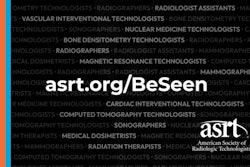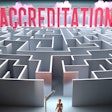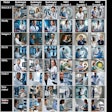Radiologic technologist educators need AI training and guidance, time to develop educational resources, and support from higher education institutions to improve on the teaching and use of AI, according to a recent study.
In a survey of all U.S. educators in the American Society of Radiologic Technologists (ASRT) database, a majority of respondents expressed the importance of teaching AI, yet only a small percentage currently include it in their curricula.
"Lack of AI knowledge among educators was the top reason for not integrating AI in education," wrote a team led by MRI radiographer Nikolaos Stogiannos of the University of London in the U.K. The study was published July 13 in the Journal of Medical Imaging and Radiation Sciences.
AI-powered applications are being deployed to aid medical radiation technologists (MRTs) in clinical workflows, decision-making, dose optimization, and a wide range of other tasks, the authors noted. Thus, exploring the levels of AI education provided in the U.S. is crucial to prepare future graduates to deliver the digital future, they wrote.
To that end, Stogiannos and colleagues sent an online survey to all radiologic technologists in the organization’s database who indicated that they had an educator role in the U.S.
Participants were asked whether they included any educational content on AI in their curricula, and if so, to describe the format of delivery of the lessons, and the AI-specific topics taught. They were then prompted to describe the most important factors required to support the development of AI-themed education, if teaching MRTs about AI was a priority for them.
Out of 5,066 educators, a total of 373 valid responses were received. Despite 84.5% of educators expressing the importance of teaching AI, only 23.7% currently included AI in academic curricula, according to the findings. Of the 76.3% that did not include AI in their curricula, lack of AI knowledge among educators was the top reason for not integrating AI in education (59.1%).
In addition, when asked whether they considered AI reliable and almost failure-free, most (243/361, 67.3%) said no, compared with those who considered AI technologies reliable (118/361, 32.7%).
“This corroborates previous findings from different disciplines, where it has been argued that educators in health professions demonstrate a general lack of expertise on how to teach AI in their curricula,” the group wrote.
Based on responses from the survey and other research, the authors suggested that the following topics could be among those included in curricula:
- AI terminology and principles
- Clinical applications of AI within the specific MRT context
- AI ethics, regulation, and governance
- AI validation, evaluation, and postmarket monitoring
- Impact of AI on workflows, careers, and professional identity
- Patient and professional acceptability of AI
- AI innovation: from idea to commercialization
“Educators requested adequate AI training, specific resources, and guidance provided by AI experts and professional societies, in addition to ample time and funding to safely and effectively integrate AI into academic curricula in the U.S.,” the authors concluded.
The full study is available here.



















